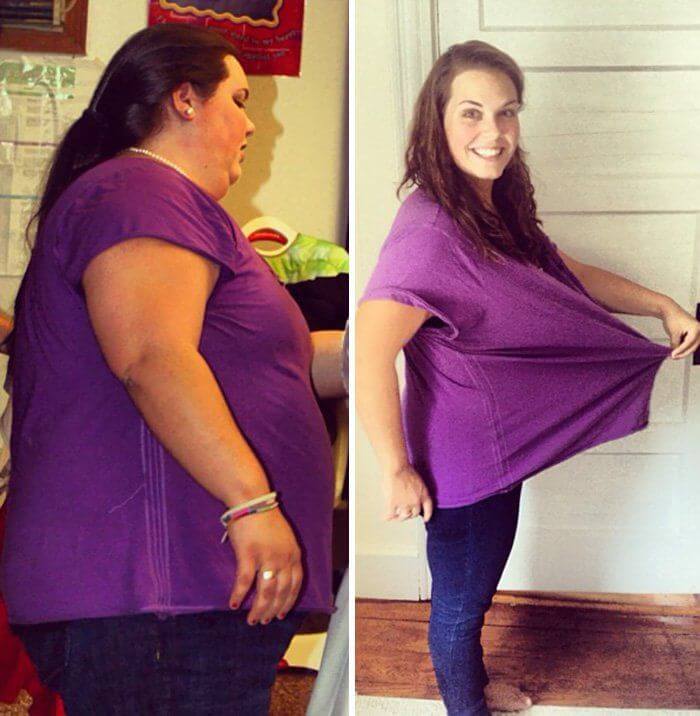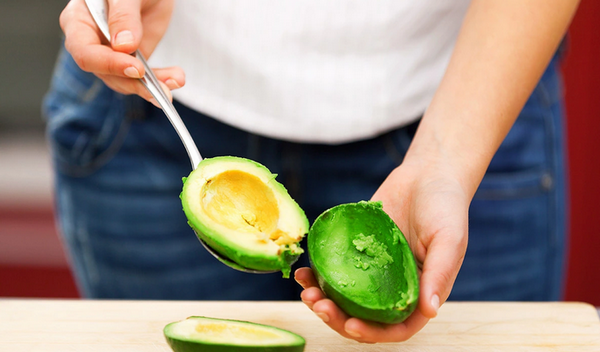
The right approach for safe weight loss from a scientific point of view
How to calculate your BZHU score? Which food sources are more reasonable to neglect for people who need to lose extra pounds? Is it conceivable to do without sports? For what reason does it become more and more difficult to get rid of extra pounds with age?
-How to calculate exactly how much protein, fat and starch is required every day? How does it turn into food?
- There are certain standards, proportions of proteins, fats and sugars that we really want to get. It is considered that starches should make up 55-60% of the total caloric content, proteins - about 15%, fats - something about 30%. These are general sentences found with an average value. However, they can change depending on what kind of lifestyle an individual leads, what he does, what his vocation is, age, what infections, etc.
Of course, it is usually difficult for an ordinary person to independently understand how many proteins, fats and starches are contained in food sources - practically without any exceptional equations of substance content, extraordinary reference books. Therefore, in order to change the ratio of the main additives (proteins, fats and carbohydrates) in products in excess of the proposed amount, it is important to have specific programs. By the way, currently it is extremely easy to download such projects to your mobile phone, there are applications that will help you with this. Nevertheless, it is wiser to contact a qualified specialist, a nutritionist, who will make a special diet for you, and you will follow it.
You can also use the "solid individual plate" rule. To understand how much and from what food sources you really want to eat, take a plate and put vegetables on one half, a meat or fish dish and a grain side dish on the other. So you can obviously see the proportion of the BZHU.
-What kinds of food should people who need to get in shape first of all refuse? Or, on the other hand, is it conceivable to eat everything except a piece?
-The fundamental principle of modern dietetics says: there are no unsafe foods, there is a one-sided diet. Moreover, this means that at the basic level there are no direct refusals for specific products. The main thing is to notice the action. Anyway, if we need to reduce the caloric content of your diet, make it more complete, more adjusted, we want to focus on reducing the amount of whole fats, especially saturated fats in the diet (these are animal fats). We also reduce the total amount of basic starches, the supposed added sugars, and, obviously, make sure that there are sufficient nutrients, minerals and other minor components of food in the diet.
This is an absolute initial step that a person who dreams of becoming more fit should take.
- What rates of weight loss each month were considered physiologically normal? How many kilograms can you "lose" without compromising your well-being?
- Of course, most of the time we are in a hurry, and we need to reschedule the result immediately. In addition, the magic that consumes fewer carbohydrates guarantees us, for example, a loss of two kilograms per week or less than ten kilograms per month. In any case, in fact, such a rapid weight loss is harmful to well-being. The ideal norm is calculated from a portion of a kilogram to a kilogram per week.
Another important indication is expected that weight loss is taking place. Considering all the circumstances, a person does not consist only of fat. The body also has bones, muscles, and a significant amount of fluid. With a corresponding weight loss, we should lose exactly adipose tissue, and in no case muscles. In addition, almost all dietary regimes - especially plans for rapid weight control - depend on the way water is excreted from the body. In the first three to five days, the extra pounds disappear, and they "flow out" along with the water, which returns just as quickly. Accordingly, it is not important to try to lose weight quickly. Make sure that the result is stable - a consistent reduction in body weight by about one kilogram every week.
-Is it important to exercise in order to get in shape, or could you become fitter at any time just by eating right?
-This is a request from the series "What would you like to eat to become more fit?". Assuming that our energy consumption does not quite match the caloric content of the diet, no matter what we do, no matter how we limit ourselves, we will not achieve results. The initial step is to increase the use of energy, that is, from one point of view, we reduce the caloric content of the diet, on the other - we increase the use of energy. That is, assuming we go two ways, the result will be; to link the use of energy - we just need to reduce the caloric content of the diet - the result may be similar, but from the very beginning it is significantly less recognizable, and also manifest itself more slowly. Thus, in order to come to a clearly formulated result, we cannot do without classes. However, they also give another reward - they strengthen a strong frame (and the more muscles we have, the better the food is digested). Therefore, active work is a vital part of legitimate weight loss.
-Nutritionists constantly recommend eating a ton of natural products. In any case, they contain a lot of sugar, and it is prescribed to consume less. How to determine your daily sugar consumption, taking into account natural products?
-Of course, vegetables and natural products are an important part of a healthy diet, and experts of the World Health Association recommend consuming at least 400, and according to current information even 500 grams per day. Obviously, organic products are better combined with vegetables. They usually contain more sugar, but this is not the sugar that is prescribed to limit in addition. It should have something like 10% calories. This is the norm for 50 g of added sugar. Natural products are excluded from this amount, so you can use them mainly without fear for your weight.
Mainly, a person suffering from diabetes has restrictions on the use of certain organic products. For a healthy person, generally speaking, there are no such restrictions, and considering that organic products, despite sugar, contain a lot of fiber, dietary supplements that help us remove everything unnecessary from the body are rich in nutrients and minerals, it is obvious that limiting fruits is ridiculous.
- Does the morning meal really have to be the main feast?
- In fact, there are three main feasts: this is breakfast, lunch, dinner in addition to what we offer to have a snack. This may well be a subsequent breakfast, a snack at noon and a little mature milk drink in the late afternoon - this is the best diet. In any case, breakfast is actually a vital dinner, and it should have about a quarter of the calorie content, that is, something about 25% of the total calorie content of the diet. Breakfast is so important on the grounds that it performs the role of an exact "kindling" that we put on the fire so that it flares up and is perfectly eaten during the day. At this point, we haven't woken up in the morning yet, nor has our digestion. How would I wake him up? A morning meal rich in sluggish sugar will help, it will give the necessary energy.
For breakfast, we suggest eating porridge, and also not fast cooking, it should be whole grain, not peeled, not steamed, with a high content of dietary fiber, nutrients and minerals. This is a great dish.
- For what reason can some people eat everything and not get better, while someone has to eat a bun, and it is immediately postponed? Is digestion unique? How can this be accelerated?
-Indeed, without a doubt, each person has his own degree of digestion of food, and we generally react in unexpected ways, including to food. Surely, there are individuals who can eat everything and not get better - these are their hereditary qualities. In fact, it is obvious that it depends on several hereditary qualities. Moreover, there are people who gain weight extremely quickly, without any problems. It also depends on several hereditary elements, but, in particular, affects the quality of FTO, the supposed quality of fullness, definitely known to everyone, which contributes to the fact that a person quickly gains weight.
Nevertheless, by coincidence, a person with this quality becomes more fit, or at least a simple change in diet leads to excellent results. Moreover, assuming that a person realizes that he is prone to fullness, that there are overweight people in his family, he should get used to the correct diet from his youth, notice certain restrictions.
- For what reason does it become more and more difficult to keep fit with age?
- The truth is that with age our digestion is restored, and, of course, if at 20 we could eat everything in a row, then the more accomplished we become, the more problems we have to solve to get rid of kilograms, and the more opportunities to increase them quickly, so there is a particularly wide offer: in order for life to go like clockwork, the caloric content of our diet should gradually decrease by about 200 kilocalories (although it depends on the person). Moreover, it is obvious that you really want to check the calorie content.- How much water would it be nice for me to wash off every day? Is it important to moisturize, apart from tea, espresso?
- Water is a vital part. I must say that we are 70%, and sometimes 80%, made up of water, and it is, in fact, difficult to live without it, so a legitimate qualified drinking system is also one of the main components of a legitimate diet and a healthy lifestyle. As for the use of water, there is a wide range of ways, however, in general, the human need for water is about 30 milliliters per kilogram of weight.
The need for water can vary depending on where we are, in the room, in what environment, what we are doing: actually working or, at least, sweating effectively, or not, or we are lying on the couch under a blanket and watching TV. That is, there are no strict standards for the use of water, and here we must pay close attention to ourselves on the grounds that the thirst system, which is physiologically implanted in us, manages our use of water well.
It is not important to drink when we would prefer not to drink, except for the minutes when we are exhausted, hard real work, high ambient temperature - drinking is vital here. Moreover, under normal circumstances, you should not force yourself, and yet we must remember that we really need liquid - about one and a half to two liters per day.
Here we mean, obviously, not only water. Usually it's some kind of drink: juice, tea.
However, you should be more careful with espresso, as caffeine removes fluid from the body. Despite the fact that it is difficult to say that espresso is harmful, it is unreasonable. Espresso is also a truly healthy drink, rich in cellular antioxidants, flavonoids and various substances. Caffeine itself is an alkaloid, which is a stimulant for our heart, for veins. Thus, with moderate use, espresso becomes valuable. That is, we are going back to where we started - there are no harmful objects, but the awareness of the measure is significant.











